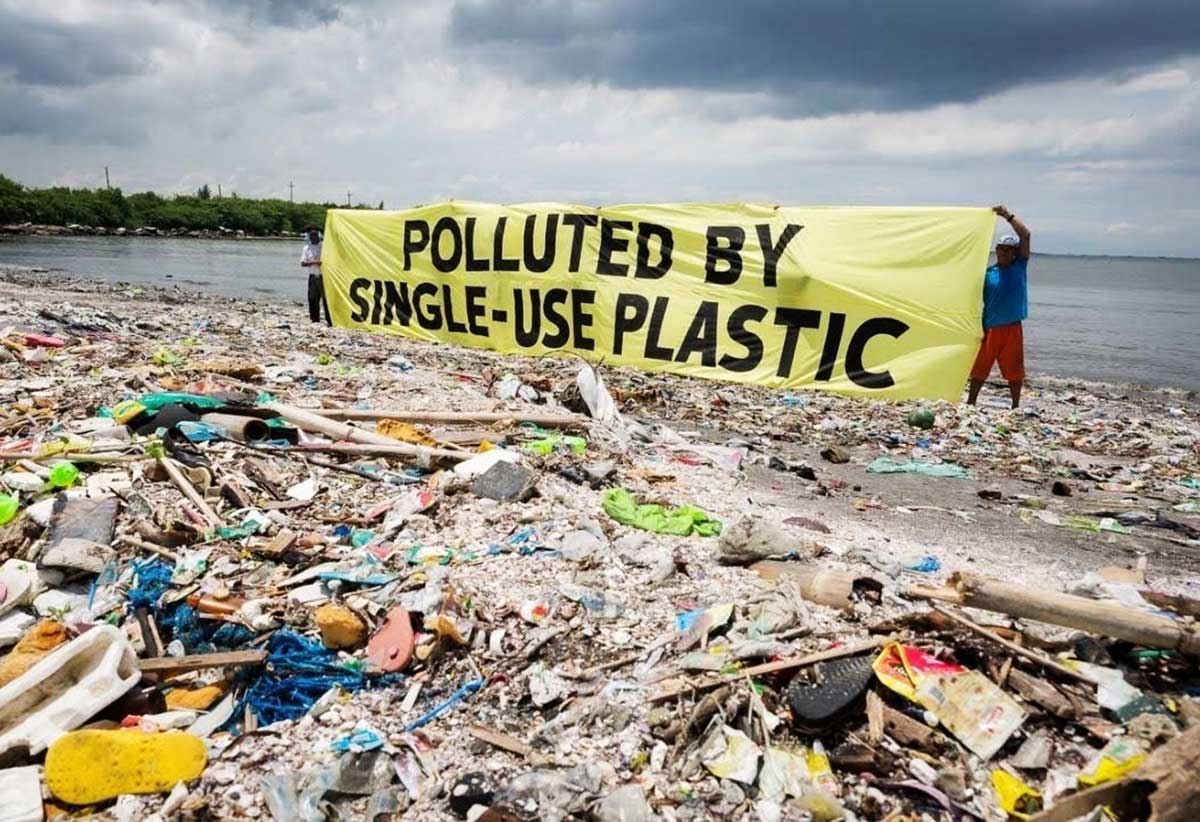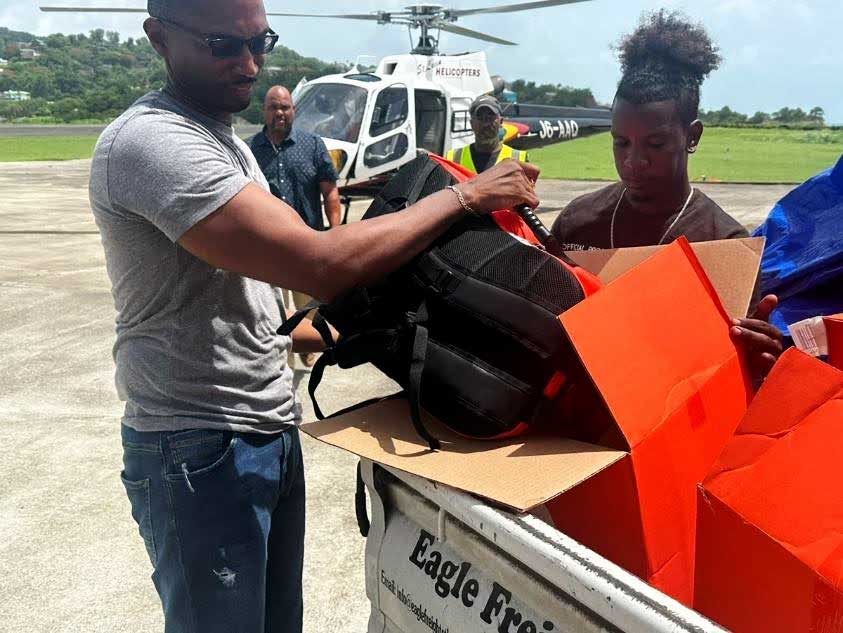
The Organisation of Eastern Caribbean States (OECS) Commission and the Media Institute of the Caribbean (MIC) have launched an initiative to strengthen Caribbean journalists’ capacity to report on plastic pollution and waste management within the context of the circular economy. This collaboration has kicked off a 4-part webinar series aimed at deepening journalists’ understanding of regional waste management challenges while equipping them with the tools to critically report on these pressing environmental issues.
The webinars, running from August 22 to September 19, have attracted significant interest from the media community across the OECS and wider CARICOM region. Eighty-six journalists have registered, with an opening day participation average of 50. Co-facilitated by MIC, the series convenes experts from the United Nations Development Program (UNDP), academia, and private consulting to deliver comprehensive insights on waste management, plastic pollution in the Caribbean, circular economy, relevant legislation, international agreements, advanced research techniques, and opportunities for media coverage and content creation.
This initiative is a key component of the broader Recycle OECS Project, implemented by the OECS in partnership with Agence Française de Développement (AFD) and funded by the European Union. The Recycle OECS Project aims to establish a sustainable model for the collection, separation, and recycling of plastic waste in the Eastern Caribbean, contributing to reducing plastic pollution in the region’s marine and terrestrial environments.
Chamberlain Emmanuel, Head of the Environmental Sustainability Division at the OECS Commission, emphasised the training’s importance:
“The rapidly increasing levels of plastic pollution pose a significant threat to our region’s biodiversity, economy, and public health. The media plays a crucial role in raising awareness and advocating for the necessary changes in policy and practice. Through this partnership with MIC, we aim to equip journalists with the knowledge and skills needed to effectively report on these critical issues and engage the public in the transition to a circular economy.”
Wesley Gibbings, Vice President of the Media Institute of the Caribbean, added:
“The task of reporting on environmental issues such as plastic pollution is not merely about transmitting messages. It requires rigorous journalistic standards, including investigation, accountability, and the accurate communication of complex scientific concepts. We are proud to partner with the OECS in this endeavor and look forward to the impactful stories that will emerge from this training series.”
Media professionals in the region are encouraged to participate in this important initiative and contribute to the ongoing dialogue on sustainable development in the Caribbean. The next webinar in the series is scheduled for August 29. More information about the webinar series can be accessed at MIC’s website.
OECS Commission & Direct Relief Announce Partnership Agreement to Enhance Climate Health Resilience in OECS Member States
Last week Friday, the OECS Commission and Direct Relief announced the signing of a grant agreement, marking the beginning of a significant partnership aimed at enhancing climate health resilience in the nine English-speaking OECS Member States. Through this agreement, Direct Relief has generously committed USD 3,000,000 to fund the new Enhancing Health Infrastructure and Resilience in OECS Member States (EHR) Project.
Direct Relief is a humanitarian aid organisation with a mission to improve the health and lives of people affected by poverty or emergencies- without regard to politics, religion or ability to pay. It works in the US and internationally to expand access to medicine and healthcare by equipping doctors and nurses with lifesaving medical resources.

The EHR Project will address critical gaps in health infrastructure identified by OECS Member States, focusing on priority areas specific to each nation’s needs. By doing so, the project aims to bolster the capacity at both national and regional levels to manage and mitigate the impacts of climate change and other hazards. It will also enhance financial and coordination mechanisms to respond effectively to disasters and outbreaks.
Since the passage of Hurricane Beryl on July 1st, 2024, the OECS Commission has been engaged in mobilizing resources to support affected Member States in their response, recovery and rebuilding efforts. The OECS-Pooled Procurement Services (PPS) was able to provide two pallets of Hurricane Prepared Modules and fifteen Emergency Medical Packs, courtesy of Direct Relief. The new Enhancing Health Infrastructure and Resilience in OECS Member States (EHR) Project, which will run over eighteen months, is both timely and relevant, with anticipated short, medium and long-term impacts.
It aligns with the OECS Commission’s mandate to promote regional integration in the OECS region and its strategic priorities. Additionally, direct beneficiaries of the EHR Project include disaster response teams, healthcare facilities, and workers. The project is expected to have positive spillover effects on community members, government agencies, and partner organisations in the implementing countries, which include: Antigua and Barbuda, Commonwealth of Dominica, Grenada, Montserrat, Saint Kitts and Nevis, Saint Lucia, Saint Vincent and the Grenadines, Anguilla and the British Virgin Islands.
The EHR Project is poised to make a substantial contribution to the OECS Commission’s Strategic Priority 4: Building resilience by strengthening communities, systems, infrastructure and people. This involves improving disaster preparedness and response, reducing vulnerabilities, and enhancing the capacity of health systems. By focusing on Strategic Priority 4, the project aims to strengthen access to and investment in health services thereby reducing health disparities, particularly during times of crisis.
Through this grant agreement with Direct Relief, the new Enhancing Health Infrastructure and Resilience in OECS Member States (EHR) Project enables OECS Member States to be better equipped to handle health emergencies and crises. It ensures that vulnerable populations continue to receive care even during challenging times, and contributes to the development of more sustainable healthcare systems within OECS Member States.




![Attendees at the UHC logo and website launch [Photo credit: GOSL]](https://thevoiceslu.com/wp-content/uploads/2026/02/Attendees-at-the-UHC-logo-and-website-launch-380x250.jpg)






![Remnants of an alleged drug boat blown up in a lethal strike by the U.S. military last week surfaced off Canouan on Saturday [Photo credit : St Vincent Times]](https://thevoiceslu.com/wp-content/uploads/2026/02/Remnants-of-an-alleged-drug-boat-blown-up-380x250.jpg)

